我們不會忘記。“伊拉克擁有核武器”,並 - 2003年入侵伊拉克期間,“美國和歐洲的日本”是津市失誤年,美國入侵伊拉克和阿富汗針對恐怖分子IS。它開始是一個問題。不要忘了,我們普通人的世界。這個問題的本質就在於此。↓。(我们不会忘记。“伊拉克拥有核武器”,并 - 2003年入侵伊拉克期间,“美国和欧洲的日本”是津市失误年,美国入侵伊拉克和阿富汗针对恐怖分子IS。它开始是一个问题。不要忘了,我们普通人的世界。这个问题的本质就在于此。↓。)/We should not forget. During the invasion of Iraq in 2003 when "Iraq held a nuclear weapon" and "United States Europe - Japan" missed, the United States made IS a terrorist and invaded Iraq and Afghanistan. That is the beginning of the IS problem. Do not forget that, we are common people around the world. This is the essence of the problem. ↓./Мы не забываем. "Ирак обладает ядерным оружием", и - во время вторжения в Ирак в 2003 году, "Соединенные Штаты и Европа Япония" была ошибка Цу лет, Соединенные Штаты вторглись в Ирак и Афганистан с учетом террористов. Начало это проблема. Не забывай об этом, наш мир обычных людей. Суть проблемы заключается в этом. ↓./우리가 잊지 말라. "이라크는 핵무기 보유 '와'미. 유럽 - 일본 '미스 못했다 2003 년 이라크 침공 때 미국은 IS를 테러리스트로 몰아 이라크와 아프가니스탄에 침공했다. 그것이 IS 문제의 발단. 그것을 잊지한다 우리 세계의 서민은. 문제의 본질은 여기에있다. ↓./Chúng tôi không quên. "Iraq có vũ khí hạt nhân", và - trong cuộc xâm lược Iraq năm 2003, "Hoa Kỳ và Châu Âu Nhật Bản" là Tsu năm sai lầm, Mỹ xâm lược ở Iraq và Afghanistan được thiết kế cho những kẻ khủng bố IS. Bắt đầu của nó IS là một vấn đề. Đừng quên điều đó, thế giới của chúng ta về những người bình thường. Bản chất của vấn đề nằm ở chỗ này. ↓./Hindi namin kalimutan. "Iraq ay may nuclear armas," at - sa panahon ng Iraq panghihimasok sa 2003, "ang Estados Unidos at Europa Japan" ay Tsu pagkakamali taon, ang Estados Unidos invaded sa Iraq at Afghanistan na iniayon sa mga terorista IS. Simula ng ito AY isang problema. Huwag kalimutan na ito, ang aming mundo ng mga ordinaryong tao. Ang kakanyahan ng problema ay namamalagi sa ito. ↓./لا ننسى. "العراق لديه أسلحة نووية"، و- خلال غزو العراق عام 2003 "، والولايات المتحدة الأمريكية وأوروبا واليابان" كان تسو خطأ سنوات، غزت الولايات المتحدة في العراق وأفغانستان مصممة خصيصا للإرهابيين هو. ابتداء من أنها مشكلة. لا ننسى ذلك، لدينا عالم الناس العاديين. جوهر المشكلة يكمن في ذلك. ↓./私たちは忘れてはいけない。「イラクは核兵器保有」と「米欧-日本」がミスった2003年のイラク侵攻の際、米国はISをテロリストに仕立て上げてイラクやアフガニスタンにも侵攻した。それがIS問題の発端。それを忘れてはならない、われわれ世界の庶民は。問題の本質はこれにある。↓。
關於教唆那個被教唆的人的人也前項和作為同樣,刑警報應呢。 挑唆暴行的人,關於那個作為結果的過失殺人犯也承擔那個責備。
2017年01月10日 04時05分27秒 | 日記
http://blog.goo.ne.jp/motomurayasuhiko/e/ffc63accc53d6315ac448695e7bc3219
2017年01月10日
挑唆暴行的人,关于那个作为结果的过失杀人犯也承担那个责备。关于教唆那个被教唆的人的人也前项和作为同样,刑警报应呢。
http://y-moto.seesaa.net/article/445759417.html
挑唆暴行的人,關於那個作為結果的過失殺人犯也承擔那個責備。關於教唆那個被教唆的人的人也前項和作為同樣,刑警報應呢。
2017/1/10(火) 午前 3:40
http://blogs.yahoo.co.jp/motomurayasuhiko/42994462.html
所謂(教唆犯)煽動者,是為了勸導,賄賂,威脅或根據其他的手段,犯犯罪說服另外的人的人。
2017-01-10 03:13:15
http://ameblo.jp/yasuhikomotomura/entry-12236665738.html
2017年01月09日
挑唆暴行的人,關於那個作為結果的過失殺人犯也承擔那個責備。關於教唆那個被教唆的人的人也前項和作為同樣,刑警報應呢。
http://plaza.rakuten.co.jp/ryukyuindepende/diary/201701090000/
2017年01月10日
挑唆暴行的人,關於那個作為結果的過失殺人犯也承擔那個責備。關於教唆那個被教唆的人的人也前項和作為同樣,刑警報應呢。
http://m-yasuhiko.seesaa.net/article/445759400.html
2017年01月17日
我們不會忘記。“伊拉克擁有核武器”,並 - 2003年入侵伊拉克期間,“美國和歐洲的日本”是津市失誤年,美國入侵伊拉克和阿富汗針對恐怖分子IS。它開始是一個問題。
http://y-moto.seesaa.net/article/445989955.html
The person who instigated the instigated person is equally punishable!
2017年01月10日 18時18分45秒 | 日記
http://blog.goo.ne.jp/motomurayasuhiko/e/887c6c3ff9911495e90bcca33e014dc6
2017年01月10日
The person who seduced an assault bears the responsibility about the injury causing death as the result. About the person who instigated the instigated person the criminal charge like a foregoing paragraph.
http://m-yasuhiko.seesaa.net/article/445787244.html
2017年01月10日
About the person who instigated the instigated person the criminal charge like a foregoing paragraph. The person who seduced an assault bears the responsibility about the injury causing death as the result.
http://y-moto.seesaa.net/article/445787319.html
About the person who instigated the instigated p
2017-01-11 05:06:36
http://ameblo.jp/yasuhikomotomura/entry-12236976152.html
2017年01月10日
The person who seduced an assault bears the responsibility about the injury causing death as the result. About the person who instigated the instigated person t
http://plaza.rakuten.co.jp/ryukyuindepende/diary/201701100000/
I want you to notice. Because the thought of people is limited in this way
2017/1/13(金) 午前 4:21
http://blogs.yahoo.co.jp/motomurayasuhiko/42998549.html
我希望發現你。人們的思考這樣做被限制我們「世界,台灣,韓國,又的琉球的平民夥伴被分割」那個事你希望快速覺醒。(我希望发现你。人们的思考这样做被限制我们「世界,台湾,韩国,又的琉球的平民伙伴被分割」那个事你希望快速觉醒。)/I want you to notice. Because the thought of people is limited in this way, we want that you are early and to awaken to it that "a common people companion of world, Taiwan, Korea and Ryukyu is divided"./Я хочу, чтобы вы обратили внимание на вас. Нас от людей мышления ограничена, чтобы сделать это, "мир, Тайвань, Южная Корея, и Рюкю людей компаньонов были разделены", что вы хотите, чтобы проснуться в начале./나는 당신이 눈치 바란다. 사람들의 생각이 이렇게 제한되어 있기 때문에 우리 "세계, 대만, 한국, 그리고 류큐의 서민 同朋이 분단되어있는"그 당신이 일찌기 일어나고 싶어요./Tôi muốn bạn để thông báo cho bạn. Chúng tôi từ những người suy nghĩ được giới hạn để làm điều này, "thế giới, Đài Loan, Hàn Quốc, và Ryukyu của người bạn đồng hành đã được chia" mà bạn muốn thức dậy sớm trong./Gusto kong pansinin ninyo sa inyo. Us mula sa mga tao ng pag-iisip ay limitado sa gawin ito, "ang pandaigdig, Taiwan, South Korea, at Ryukyu ng mga tao companions ay hinati" na gusto mong gumising ng maaga sa./أريدك أن تلاحظ لك. لنا من الناس من التفكير يقتصر على القيام بذلك "، والعالم، وقد تم تقسيم تايوان، وكوريا الجنوبية، وريوكيو من الناس الصحابة" الذي تريد الاستيقاظ في وقت مبكر.//私は貴方に気づいてほしい。人々の思考がこうやって制限されているから私たち「世界、台湾、韓国、そして琉球の庶民同朋が分断されている」そのことに貴方が早く目覚めてほしい。
寛彦(KuanYan)本村安彦
沒有,沒有表現偏向對只來自一方的受害為何呢,「日本和美國和歐洲」的筆者的指責。是俄羅斯方面指責那個一方面。事的開端從2003年的「其實核武器對那裡沒有的伊拉克」侵佔的,由於「日本和美國和歐洲」的謊言。(没有,没有表现偏向对只来自一方的受害为何呢,「日本和美国和欧洲」的笔者的指责。是俄罗斯方面指责那个一方面。事的开端从2003年的「其实核武器对那里没有的伊拉克」侵占的,由于「日本和美国和欧洲」的谎言。)/There is not the criticism of the writer for "Japan and the United States and Europe" where it will be why that expression is inclined only to damage from few one side. Of the side criticism in Russia, on the other hand. Though the beginning of thing is from the "Iraq invasion where, in fact, there was not a nuclear weapon there" of 2003, it depends on a lie of "Japan and the United States and Europe"./Нет, это было бы, почему только в представлении смещено ущерб от одной пары, не существует никакого осуждения автора для "Японии и Соединенных Штатах и Европе." С другой стороны, русская сторона обвинила. Но все начало такого вторжения, "Ирак на самом деле ядерное оружие не существует" в 2003 году, согласно ложь "Японии и Соединенных Штатах и Европе."/없는 한쪽에서 피해만큼 표현이 쏠리는 것은 왜 일까 "일본과 미국과 유럽 '에 대한 필자의 비난이 없다. 러시아 측은 비난 반면. 사건의 시작은 2003 년의 「실은 핵무기가 거기에 없었다 이라크 '침공에서인데 "일본과 미국과 유럽」의 거짓말에 의한 다./Không, nó sẽ là lý do tại sao chỉ trong các đại diện thiệt hại thiên vị từ một trong một cặp, không có sự lên án của các tác giả của "Nhật Bản và Hoa Kỳ và Châu Âu." Mặt khác phía Nga cáo buộc. Nhưng điều này là sự khởi đầu như vậy từ cuộc xâm lược, "Iraq thực sự vũ khí hạt nhân là không có" trong năm 2003, theo lời nói dối của "Nhật Bản và Hoa Kỳ và Châu Âu."/Hindi, ito ay magiging kung bakit lamang sa representasyon kampi pinsala mula sa isa sa isang pares, walang pagbabawal sa paggamit ng may-akda para sa "Japan at ang Estados Unidos at Europa." Sa kabilang dako ang Russian side akusado. Ngunit ang mga bagay na ito'y pasimula ng tulad mula sa panghihimasok, "Iraq aktwal nuclear armas ay hindi doon" noong 2003, ayon sa mga kasinungalingan ng "Japan at ang Estados Unidos at Europa."/لا، فإنه سيكون لماذا فقط في التمثيل الضرر منحازة من واحد من زوج، لا يوجد أي إدانة للمؤلف ل "اليابان والولايات المتحدة وأوروبا." من ناحية أخرى اتهم الجانب الروسي. لكن الأمور بداية من هذا القبيل من الغزو، "العراق في الواقع الأسلحة النووية ليست هناك" في عام 2003، وفقا لكذبة "اليابان والولايات المتحدة وأوروبا."/ない、片一方からの被害だけに表現が偏るのは何故だろう、「日本とアメリカやヨーロッパ」に対する筆者の非難がない。ロシア側非難のその一方で。事の始まりは2003年の「実は核兵器がそこになかったイラク」侵攻からなのに、「日本とアメリカやヨーロッパ」の嘘による。
>>On Aleppo: A Letter to a Historian in the Future
Posted 9 January 2017 20:54 GMT
https://globalvoices.org/2017/01/09/on-aleppo-a-letter-to-a-historian-in-the-future/

“To the girl who shared the siege with me: I love you”. Eastern Aleppo, December 15, 2016. Photo by Salih Abo Qusay. Used with Permission.
By Samer Frangie
You might receive an invitation to a conference exploring the root causes of the collapse of the Middle East. Or perhaps you are simply interested in studying this region, home to your people before the collapse that prompted their exile and migration. Or maybe you are just curious about events that took place half a century ago. I do not know, but in any case you will one day return to this pivotal year in order to understand your present, a present that has been forged out of this collapse. You will visit a library and find hundreds of books about the causes of the collapse: the rise of ethnic identities, the economic recessions, the collapse of the “illusion” that we once called the ‘center’.
Your present may have reconciled itself to the rule of the extreme right and normalized its racist ideology. I do not know. It is also possible that this wave has already passed, following the wars and the destruction it caused, and your research has led you to hold previous generations accountable for the rise of that wave. I do not know.
In any case, you will only be able to revisit this period through the bookshelves that separate your present from your past, or our present. You will find numerous studies written about the “Arab Spring” and many more next to them about the “Arab Fall.” You can simply ignore them. They were hastily written and exclusively meant to secure some fame for intellectuals whose only breakthrough was the play on the notions of spring and fall.
You may also ignore another bookshelf, the one with the books in black covers about a group we called “Daesh,” of which you may not have heard. This fundamentalist group constituted the fabric of all of our obsessions before we discovered that the wars we waged against it endured for decades after its demise, and even after it faded from our memories. Back then, we produced loads of books to frighten ourselves because we were slightly bored and we found something that could both terrify and exhilarate us.
On the other hand, you will not find many books about Syria, that country that was at the roots of what you now might be calling “Useful Syria.” The few books that you will find talk of a revolution that started in 2011 before it “deviated” from its noble course. You will not find many studies on this topic for the years 2011-2016, because it was a “complicated” period for the intellectuals of our time who could not understand what was going on. And so they preferred to remain silent – the only time they chose to halt the endless mill of speech. Following this period of silence, you will find a torrent of studies about the need for dialogue, reconciliation, and the reconstruction of Aleppo, the city that was inaugurated after its reconstruction by the son of the late president Bashar Al-Assad. You may think there is little of research interest here, nothing more than the garden variety disputes of a country ruled by a ‘progressive’ tyrant. Once, there existed backward tribes that staged a rural revolt against the urban centers, co-opting the mosques to eliminate pluralism, all because of the drought. This is what the Arabic language teacher at the University of Damascus will tell you when you visit this city where tradition and modernity meet, as the billboard in the airport proudly indicates. This is also what your dissertation supervisor will confirm as he steers you to more important research questions such as the orientalist discourse in car advertisements, or the role the west played in the Arab revolutions. In most likelihood, Russian imperialism would not yet have been elevated to the status of a research topic.
The scenario could be different. You might have heard of Aleppo and its destruction. Perhaps, this city, or one of its neighborhoods, would have gone down in history alongside Guernica, Dresden, or Deir Yassin as icons of destruction and murder, only serving as harbingers of the dark times lying ahead. You may find some oil sketches here or some verses of poetry there speaking of this city. You might stumble upon such verses in your search for some imagery to use in the introduction of your dissertation. And the question you never asked your parents, but which has haunted you, will come back: “How did you consent to such destruction, killing and displacement?” Therein lies the advice of this letter: Stop at this question, at Aleppo and at the Syrian revolution. For this is where the story began. From the vantage point of your present, you might not be able to see the pivotal importance of the Syrian Revolution, for the silence of which I spoke earlier would have squandered it. You may find numerous writings accusing those who used the word “revolution” of appealing to an ideology that contradicted reality, and from your perspective, this accusation may seem valid. But today, 50 years before you read this letter, Aleppo is burning. And the term “revolution” is all we have left so that we do not participate in this murder. So forgive us our misuse of these concepts.
Go back to Aleppo and ask us why we acquiesced. Do not waste your time searching for a connection between the price of oil and the massacres, or the growth of the Russian empire and the destruction, or even on metaphysical analyses of discourse and its inherent complexities. Do not delve deep and simply ask us how we acquiesced. Do not hold us responsible because you too could have accepted the destruction as we did. But do not forgive us either. Stay at the surface where you will find everything you need. If a text or a book tells you that we did not know, be sure that is falsehood. Do not feel that your distance from the events disqualifies you from being certain of that. We knew. We understood. We all knew the names of the dead. We have photos of every martyred infant and videos of every wounded who fell. And we have farewell letters written moment before the fall. You are not likely to find them in your library, but they were available to us. The people of Aleppo tried to communicate with us by letters, by photos, by videos, by prayers, by jokes and by screams. But for some reason, we did not respond. We knew, so do not abandon your question: How did you let it happen?
Stay at the surface, for Aleppo’s moment was the moment that the world decided to compress and release all that was below the surface. Perhaps you have not lived through moments like these, and you are fortunate, for these were dark moments. Aleppo was the moment the world decided it had tired of even going through the motions. It was the moment a clown was elected President, a tyrant became the free world’s champion, and world leaders competed to abet a criminal. You might not understand how we hit rock bottom. We did not understand either. But we knew. After this moment, all shame was lost when the institutions had already collapsed and violence had become the norm. If you are interested in the collapse, do not go far or deep, stay at Aleppo’s ravaged surface and you will understand how all can be lost in a single moment.
I cannot predict what will have taken place between this letter and your present. Perhaps the world will have learned from Aleppo and awoken from this madness. Perhaps this madness will have led to wars which compelled the world to face its moment of abandonment. But perhaps all of this will not have happened, and you will still be living in a world which thinks the Assads are the best this region can offer. I do not know. What is certain, in any of these cases, is that this region has collapsed. And if there is still one thing that we can pass on to you from all this rubble, it is this: Remember Aleppo, not as an icon of impossible heroisms or the necessary price for an ideological revolution, but as a moment, a moment when the world decided in full awareness and in cold blood to give up on itself.
Samer Frangie is Director of the Center for Arab and Middle Eastern Studies (CAMES) and Associate Professor at the Department of Political Studies and Public Administration (PSPA), both at the American University of Beirut. His research and teaching interest includes the intellectual and political histories of the modern Middle East and contemporary social theory. He has published a number of articles on the intellectual history of the Arab Left and is currently working on a book manuscript on the memory of the left. Aside from his academic work, he has published extensively in the Arab press.
This article was originally published in Arabic in Al-Hayat, and translated into English by Reem Harb, Roa Harb, and Siba Harb. The translation was originally published on ‘AUB Political‘ and republished here with permission.










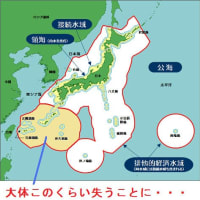
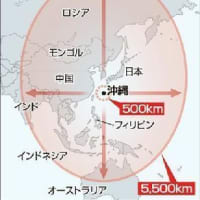
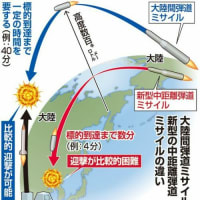
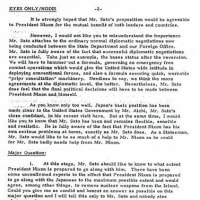
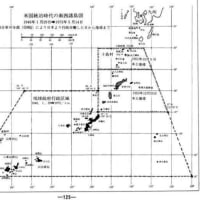
※コメント投稿者のブログIDはブログ作成者のみに通知されます